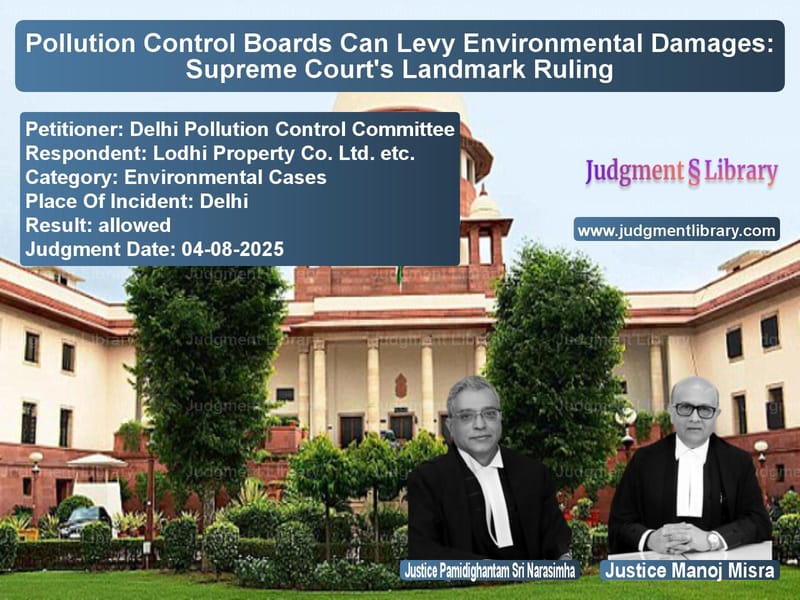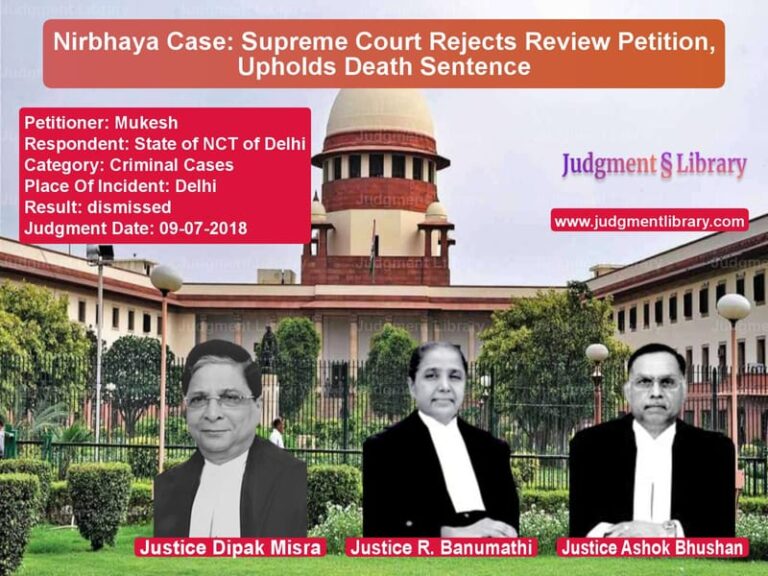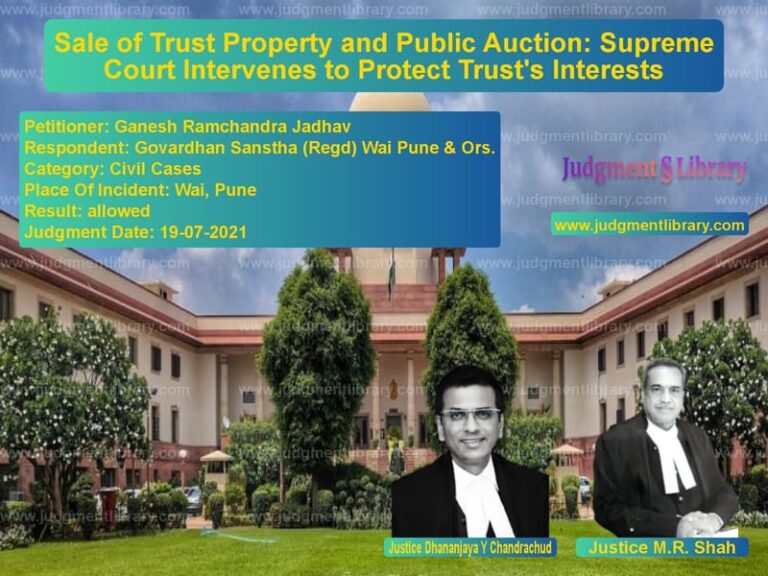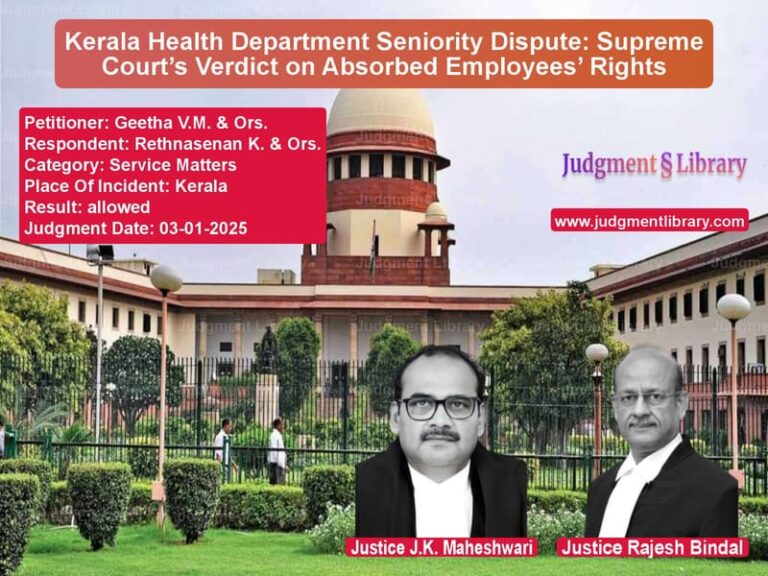Pollution Control Boards Can Levy Environmental Damages: Supreme Court’s Landmark Ruling
In a landmark judgment that significantly strengthens India’s environmental protection framework, the Supreme Court has ruled that pollution control boards have the power to impose and collect compensatory damages from polluting entities. The case, which pitted the Delhi Pollution Control Committee against various real estate companies, centered on a fundamental question: can environmental regulators demand financial compensation for ecological damage without going through lengthy court procedures?
The dispute originated when DPCC issued show cause notices to several residential complexes, commercial complexes, and shopping malls for operating without obtaining mandatory ‘consent to establish’ and ‘consent to operate’ under environmental laws. These entities had proceeded with construction and operations without the required permissions, prompting the pollution control body to take action.
The companies challenged these notices in the Delhi High Court, where a single judge ruled in their favor. The court held that pollution control boards lacked the authority to levy environmental damages or demand bank guarantees. This decision was later upheld by a Division Bench of the High Court, which stated that “the power to issue directions under Section 33A of the Water Act and the power to issue directions under Section 31A of the Air Act, on their plain language, does not confer the power to levy any penalty.”
The High Court further elaborated that “under Chapter VII of the Water Act and under Chapter VI of the Air Act penalties and procedure to levy the same have been set out. A perusal of the provisions under the Water Act would reveal that penalties can be levied as per procedure prescribed and only Courts can take cognizance of offences under the Act and levy penalties.” This interpretation severely limited the powers of pollution control boards, essentially reducing them to complainants who must approach courts for any financial penalties.
The Delhi Pollution Control Committee appealed this decision to the Supreme Court, arguing that the High Court had erred in its interpretation. Mr. Pradeep Mishra, appearing for DPCC, contended that the application of the Polluter Pays principle was distinct from the requirement of authority of law to impose tax or penalty.
The respondents, including companies like Lodhi Property Co. Ltd. and Bharti Realty Ltd., strongly supported the High Court’s decision. Their counsel submitted that “it is a settled principle of law that if a statute provides for a thing to be done in a particular manner, then it has to be done in that manner and no other.” They argued that since Chapters VII and VI of the Water and Air Acts prescribed specific procedures for imposing penalties, the boards could not bypass these statutory provisions.
The Supreme Court, in its comprehensive judgment, began by examining the existing legal regime for pollution control in India. The Court noted that under Section 17 of the Water Act, State Boards have enormous responsibilities including planning comprehensive programs for pollution prevention, advising state governments, collecting and disseminating information, and inspecting sewage or trade effluents.
The Court then delved into the crucial distinction between punitive actions and compensatory measures. Quoting from its earlier decision in M.C. Mehta v. Kamal Nath, the Court emphasized: “Pollution is a civil wrong. By its very nature, it is a tort committed against the community as a whole. A person, therefore, who is guilty of causing pollution has to pay damages (compensation) for restoration of the environment and ecology. He has also to pay damages to those who have suffered loss on account of the act of the offender.”
The judgment extensively discussed the Polluter Pays principle, which has been part of Indian jurisprudence since 1996. Referring to Indian Council for Enviro-Legal Action v. Union of India, the Court noted: “according to this principle, the responsibility for repairing the damage is that of the offending industry.” The Court further elaborated that “the ‘Polluter Pays Principle’ as interpreted by this Court means that the absolute liability for harm to the environment extends not only to compensate the victims of pollution but also the cost of restoring the environmental degradation.”
In a significant clarification, the Court stated that “the actual degradation of the environment is not a necessary condition for the application of polluter pays principle, as long as the offending activities have the potential of degrading the environment.” This means that regulators can take preventive action even before actual damage occurs.
The Supreme Court made a crucial distinction between the powers of pollution control boards and the role of courts: “There is a distinction between a direction for payment of restitutionary and compensatory damages as a remedial measure for environmental damage or as an ex-ante measure towards potential environmental damage on the one hand; and a punitive action of fine or imprisonment for violations under Chapters VII of the Water Act and VI of the Air Act on the other hand.”
The Court emphasized the institutional role of pollution control boards, stating: “These Boards functioning as our environment regulators are expected to act with institutional foresight by evolving necessary policy perspectives and action plans. Working with perpetual seal and succession, they are to develop and retain institutional memory so that they can act on the basis of the experience, data and information that they would have gathered and processed.”
In its final ruling, the Supreme Court declared: “we are of the opinion that that the Division Bench of the High Court was not correct in restrictively reading powers of the Boards. We are of the opinion that these regulators in exercise of these powers can impose and collect, as restitutionary or compensatory damages fixed sum of monies or require furnishing bank guarantees as an ex-ante measure towards potential or actual environmental damage.”
However, the Court also imposed important safeguards to prevent arbitrary exercise of these powers. It directed that “the power to impose or collect restitutionary or compensatory damages or the requirement to furnish bank guarantees as an ex-ante measure under Sections 33A and 31A of the Water and Air Acts shall be enforced only after detailing the principle and procedure incorporating basic principles of natural justice in the subordinate legislation.”
The Court emphasized that “the powers of the Boards under Sections 33A and 31A of the Water and Air Acts must always be guided by two overarching principles. First, that the power cannot be exercised in an arbitrary manner; and second, the process of exercising this power must be infused with transparency.”
While allowing the appeal on the point of law, the Supreme Court did not revive the specific show cause notices from 2006 that had started the legal battle, noting that too much time had passed. The Court directed that if any amounts had been collected based on those notices, they should be returned within six weeks.
This judgment represents a significant strengthening of India’s environmental governance framework. By empowering pollution control boards to directly impose compensatory damages, the Supreme Court has provided these regulatory bodies with an effective tool to ensure that polluters bear the cost of environmental restoration. At the same time, the requirement for transparent procedures and natural justice safeguards protects entities from arbitrary actions, striking a balance between environmental protection and fair governance.
The ruling acknowledges the urgent need for effective environmental regulation in the face of climate change and increasing pollution challenges. By recognizing the distinction between punitive penalties and compensatory damages, and by empowering specialized regulatory bodies to take immediate action, the Supreme Court has taken a significant step toward more effective environmental protection in India.
Petitioner Name: Delhi Pollution Control Committee.Respondent Name: Lodhi Property Co. Ltd. etc..Judgment By: Justice Pamidighantam Sri Narasimha, Justice Manoj Misra.Place Of Incident: Delhi.Judgment Date: 04-08-2025.Result: allowed.
Don’t miss out on the full details! Download the complete judgment in PDF format below and gain valuable insights instantly!
Download Judgment: delhi-pollution-cont-vs-lodhi-property-co.-l-supreme-court-of-india-judgment-dated-04-08-2025.pdf
Directly Download Judgment: Directly download this Judgment
See all petitions in Environmental Cases
See all petitions in Judgment by P.S. Narasimha
See all petitions in Judgment by Manoj Misra
See all petitions in allowed
See all petitions in supreme court of India judgments August 2025
See all petitions in 2025 judgments
See all posts in Environmental Cases Category
See all allowed petitions in Environmental Cases Category
See all Dismissed petitions in Environmental Cases Category
See all partially allowed petitions in Environmental Cases Category







